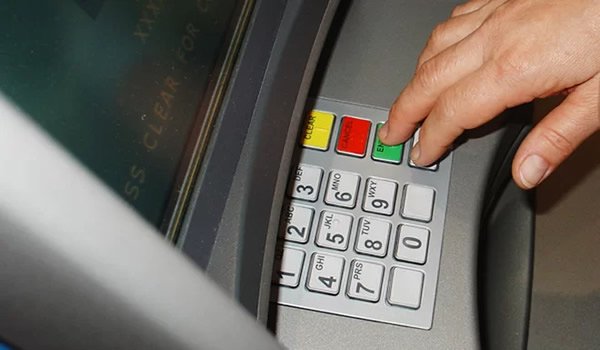‘17 ATMs, others serve every 100,000 Nigerians’

[ad_1]

There are 17 automated teller machines, 147 point-of-sale devices, and four bank branches for every 100,000 Nigerians, according to a new report by McKinsey.
This is behind North America’s 210 ATMs, about 3,000 PoS, and bank 25 branches for the same number of people, indicating that Nigeria and other African countries are behind developed countries in terms of penetration of bank branches and formal ATMs.
To overcome this, agent networks as a substitute for brick-and-mortar environments are a key growth strategy for fintechs in the nation and on the continent.
There are over 700 mobile money and banking agents for every 100,000 Nigerian adults, with 43 agents for each ATM in the country.
Even though this is behind Kenya where there are 1,322 agents for every 100,000 adults and 189 agents per ATM, agent networks are enabling fintech players to grow their customer base, facilitate transactions, onboard merchants, and build trust.
According to the report, they also create jobs, especially for young people.
It said, “GSMA estimates that the mobile industry in sub-Saharan Africa directly employed 1.2 million youth in 2018, and this number is expected to grow to 1.5 million by 2025.
“Telcos, fintech, and banks are all significant players in the agency banking landscape, each with their own strengths and weaknesses. Telcos like M-Pesa and MTN have the advantage of a large pre-existing network of agents (600,000 agents and 800,000 agents countrywide respectively).
“Banks’ agent networks are smaller, ranging from 15,000 to 100,000; however, they benefit from being able to leverage their physical branches to facilitate training and management. Of the three players, fintechs have the largest pool of financially trained agents. OPay has approximately 300,000 agents, while in Egypt, Fawry had 166,500 active agents.”
The report titled, ‘Fintech in Africa: The end of the beginning (August)’, reveals that reaching clients offline is a key ingredient for fintech success in Nigeria and other African countries.
It stated that only about 10 per cent of transactions on the continent are digital, with fintech revenues hitting $4-6 bn (asides from South Africa) in 2020. Fintech revenues are projected to hit $30bn by 2025.
The report explained that while the African fintech space has been growing in leaps and bounds, its development is still in its early stages.
It stated that while fintechs have made significant inroads, in wallets, payments, and distribution, there is still plenty of room for expansion.
It said for fintechs to achieve their potential in Nigeria and other African countries, in terms of scale and profitability they must consider that markers are limited by infrastructure constraints.
“These typically include weak mobile and internet penetration in some markets, lack of identification coverage, and limited payment rails—the backbone of all digital transfers of money. Across Africa, just three countries have real-time payments and the necessary payment rail infrastructure in place.
“Fintechs aiming to scale across the continent may need to take this geographic variability into account and tailor their approach to each country based on its inherent characteristics, infrastructure, regulatory frameworks, and varying customer needs and habits,” the report revealed.
It also added, “Navigating an uncertain regulatory environment: In addition to uneven infrastructure across markets, fintechs in Africa also have to contend with a fragmented financial regulatory framework. Different countries are evolving at different paces.
“Managing scarcity: Businesses don’t run on infinite resources. Time, money, and people need to be managed effectively to launch and sustain growth.
“After record-breaking fintech investment in 2021, funding is slowing down, especially for later-stage startups, but with incumbents starting to catch up with disruptors, fintechs can’t afford to slow down their progress. This suggests that African fintechs will likely have to tighten their belts to adjust to a new venture funding reality.
“Building robust corporate governance foundations: Ensuring world-class corporate governance is likely to be a critical factor in enabling fintechs to navigate this uncertain and fragmented terrain, manage scarcity, and successfully reach scale and profitability. An effective governance structure can help to build a strong, positive organizational culture that provides stability, clarity, and direction—even in difficult times.”
[ad_2]


